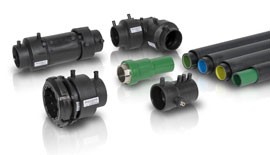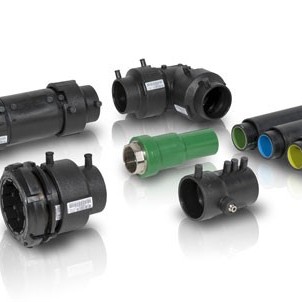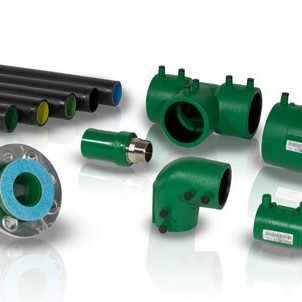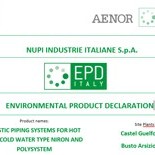SMARTFLEX AND SUPERSMARTFLEX OBTAIN EPD ENVIRONMENTAL CERTIFICATION

The commitment made by NUPI continues in determining the environmental performance of its products through the study of their life cycle (LCA). In addition to the already existing EPDSs Environmental Product Declarations, available for the polypropylene and polyethylene ranges, today the company boasts the same certification for Smartflex/Supersmartflex, multilayer plastic piping system with electrofusion plastic fittings and mechanical fittings. The published EPDs have been drawn up in accordance with Standard UNI EN ISO 14025, following the rules of UNI EN 15804 + A1 for construction products, the regulation and PCR of the Italian Program operator, EPDItaly. The contents of these EPDs are mainly aimed at industrial and commercial users of the product and allow to improve environmental communication between producers on the one hand (business to business), and distributors and consumers on the other (business to consumers). Having an EPD allows professionals to choose products that meet specific sustainability criteria, necessary for the design of buildings from a Smart and Green Building perspective. EPD certified products are required by the main building certification systems such as LEED (American but also international), BREEAM (English but also international), HQE (French), DGNB (German) and ITACA (Italian) as well as in Italian legislative schemes (e.g. in sustainable public procurement, GPP). These are voluntary product certifications, which further enhance NUPI pipe and fitting systems because they are produced according to the best standards of sustainability and responsibility.
Smartflex/Supersmartflex EPD
Smartflex/Supersmartflex EPD is product-specific and discloses the environmental impacts of all process phases, from the extraction of raw materials to the end of life of the product itself, also analyzing use, maintenance and installation, and including possible end-of-life reuse, recovery and recycling scenarios. It is in fact an EPD of the type "From the cradle to the grave", like all the other ones at NUPI.
Results obtained and their interpretation
The environmental impacts have been calculated on the basis of a specific functional unit that takes into account the actual application of the system. The choice was a type of service station consisting of two product tanks and two fuel distribution islands. Smartflex and Supersmartflex double wall pipes were included for the creation of product distribution lines and single wall pipes for ventilation, vapor recovery and tank filling lines. A total of about 140 meters of underground pipes (diameters 50, 63 and 90 mm with a typical wall thickness according to class SDR 13.6) and Smartflex fittings (elbows, tees, bends, couplers, flanged and threaded joints) for underground and pressure distribution. The service life attributed to Smartflex/Supersmartflex pipes was 30 years in accordance with EN14125 and UL 971 standards, i.e. equal to the average of a service station. Since the impact categories are multiple and wanting to focus on the most "known" in common jargon, or on Global Warming (GWP) or carbon footprint, we can say that Smartflex/Supersmartflex piping system produces much less kg of CO2 than a similar system of metal pipes.
GENERAL CONSIDERATIONS ON THE ENVIRONMENTAL PROFILE OF NUPI PIPES
NUPI piping systems are energy efficient, as the extrusion and molding processes are less energy-intensive than those of metal materials. They allow to reduce the environmental impacts due to transport, thanks to the lightness of the plastic material. They eliminate the impacts relating to the use and maintenance phases; in fact, plastic pipes were considered to have zero impact due to their durability characteristics (equal to 50 years for the pipes for the distribution of hot and cold water inside the buildings, 100 years for the underground polyethylene pipes for the distribution of water, gas and industrial fluids and 30 years for underground plastic multilayer pipes for service stations). Strong, durable, lightweight and flexible, these piping systems require significantly less energy to manufacture, transport and install than metal alternatives (copper, steel) and, with superior corrosion and abrasion resistance, also ensure excellent hygiene of the transported drinking water or excellent quality of the transported fluid. NUPI EPDs are available both on NUPI website and on EPDItaly website that has published them within its environmental product certification program.



